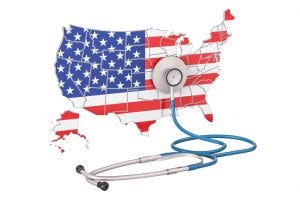
Biosimilar uptake in the US has been stifled in the inflammation and immunology (I&I) space but Pfizer expects a different dynamic for oncology products.
Pfizer’s biosimilar business had a robust year in 2018. The firm reported a 41% operational growth in the sector over the year prior, with total sales of $769 million (€674 million). The company attributed much of this growth to sales of Inflectra, its version of J&J’s Remicade (infliximab), which pulled in $642 million worldwide including $259 million in the US.
In 2016, Inflectra became the first infliximab biosimilar to arrive in the US, but like Merck & Co.’s product Renflexis – launched the year after Inflectra – it is yet to have had a significant impact on the reference biologic’s market share as it has in Europe.

Image: iStock/AlexLMX
“In the EU, we see a very rapid uptake and actually great acceptance of biosimilars,” said Angela Hwang, group president of Pfizer Biopharmaceuticals Group, on the call. The Infliximab biosimilars are about 65% of the total market share, she added, thanks to rapid uptake and acceptance by payers.
The US has presented a different picture. “We see a market that I think is evolving and developing,” she added. According to J&J, Remicade still holds a 93% of the infliximab volume share in the US.
Oncology vs I&I
But Hwang said the market dynamic will change when oncology biosimilars arrive in the US.
“Our experience with infliximab in the US really is not a great analogy for what might be to come with our new oncology biosimilars, just because they’re just very different dynamics in the I&I space compared to the oncology space. The big difference in the I&I space in the US is the exclusionary contracting from J&J, which has really prevented and been a great impediment to our ability to grow the I&I biosimilar,” she said.
Pfizer plans to launch three oncology biosimilars from its portfolio in 2019 in various markets: Versions of Roche’s Herceptin (trastuzumab), Rituxan (rituximab) and Avastin (bevacizumab).
“Rebates rather than net price has really driven I think formulary access. And that has been a great barrier to our ability to grow. However, we see different dynamics in the oncology space. And that is because oncology drugs are shorter in duration of therapy, so that allows new patients to turn over faster. And it will make it easier for the physicians to initiate new patient on oncology biosimilars. And we believe that this will enable customers to benefit from the cost savings that they can derive from biosimilars much more quickly than what you might see in the I&I space where the duration of therapy is very long. It’s a long chronic disease.”
The US Food and Drug Administration (FDA) has approved three Herceptin (trastuzumab) and one Rituxan (rituximab) biosimilar to date, but these are yet to have been launched in the region.
About the Author
You May Also Like

schedl_b_and_w.jpg?width=100&auto=webp&quality=80&disable=upscale)
schedl_b_and_w.jpg?width=400&auto=webp&quality=80&disable=upscale)



